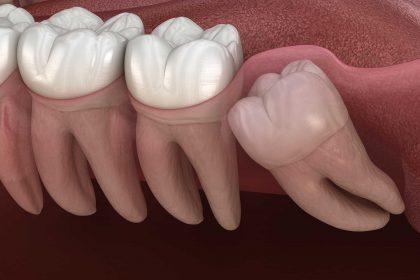So your dentist has delivered some tragic news: You need a root canal. You probably knew this was coming. The toothache has been hurting more, along with the sensitivity to temperature and the pain when chewing.
But the news gets even worse. The dentist is tossing out numbers in the range of $1,000 for root canal therapy and then at least as much on top of that for a dental crown. If you’re hoping to save some money, you might be wondering: Is a crown necessary after a root canal? Can’t they just drill it and fill it?
In some cases it might be possible to finish a root canal with a simple filling. But more often, a tooth in need of root canal treatment is already significantly impaired. Placement of a dental crown will provide structural strength to give your natural tooth a much greater chance of surviving for many more years than it would with a dental filling.
Back teeth that experience more pressure when chewing will benefit the most from crowns, but it’s also a good idea to use crowns on front teeth that are structurally compromised.
How does a root canal procedure affect a tooth?
The structure of a tooth has three layers: the enamel is the hard, non-living, mineralized outermost layer; the dentin is living tissue similar to bone; and the dental pulp is the innermost layer of soft tissue containing a mess of nerves and blood vessels.
When this inner pulp becomes exposed and infected — usually because of tooth decay or a crack — there’s no going back. The pulp can’t be treated with antibiotics, so it needs to be removed in a dental procedure called a root canal. A local anesthetic will be used to to make you numb, the infected pulp will be removed from the pulp chamber through a small hole that the dentist drills in the tooth, and the empty root canal will be filled with rubbery gutta-percha material.
Once the pulp has been removed, though, the tooth is weaker than it used to be — not to mention the existing damage from whatever cavity, root resorption, or cracks led to the need for the root canal.
This is where the dental crown comes in.
Dental crowns are fixed over your natural tooth like a cap, surrounding all or part of the tooth, protecting it, preventing further damage, and holding it together against all the forces (around 70 pounds per square inch) of biting and chewing.
Dental crowns can be made from a variety of hard, durable materials, including porcelain, zirconia, metal, or porcelain fused to metal. They can be made to look just like your existing teeth, and they usually last long enough to make the high cost well worth it.
Crowns are expensive not just because of the cost of the materials, but because they have to be expertly crafted and customized to precisely cover your damaged tooth. Your teeth are like your fingerprint: They’re uniquely yours. They can’t just roll these things off an assembly line.
So is a crown always necessary after a root canal?
If for some reason you need a root canal on a tooth where there is very little damage, and it can be repaired by a small filling, you might be able to get away without a crown. But especially on teeth in the back of the mouth, which experience a lot of pressure, a tooth that has lost its pulp (non-vital) is more susceptible to cracking and damage. If your dentist recommends a crown, then it’s a very good idea to follow through with treatment and be a compliant patient.
What if you choose not to get a crown?
A damaged tooth will fail eventually. It will crack or split, and it will have to be removed. A crown can make that tooth last much longer than it otherwise would.
When your tooth fails and falls out or is extracted by your dentist, you’ll have a couple options. Some people will be eligible for dental implants, which can be quite expensive and must also be capped by a new dental crown. Otherwise, it’s time for a bridge — another fake tooth that spans the gap where your missing tooth used to be. You think you don’t like crowns? You don’t like dental bridges, either.
Listen to your dentist.
Actually, your dentist doesn’t really want to give you a crown anyway. Your dentist would much prefer that you solve the problem long before a root canal or a crown becomes necessary. Your dentist wants you to keep your natural teeth in good condition for as long as possible. Prevention is key. If you don’t want a crown, here’s what you need to do for excellent dental health before dental disasters set in:
- Brush your teeth twice a day, for two minutes each time.
- Floss every day.
- Use a water flosser every day to flush out anything your toothbrush and floss left behind.
- See your dentist regularly for check-ups so that you can stop oncoming cavities in their tracks.
- Visit a dental hygienist twice a year — or as often as your dentist recommends for you particular needs — for a thorough teeth cleaning.




